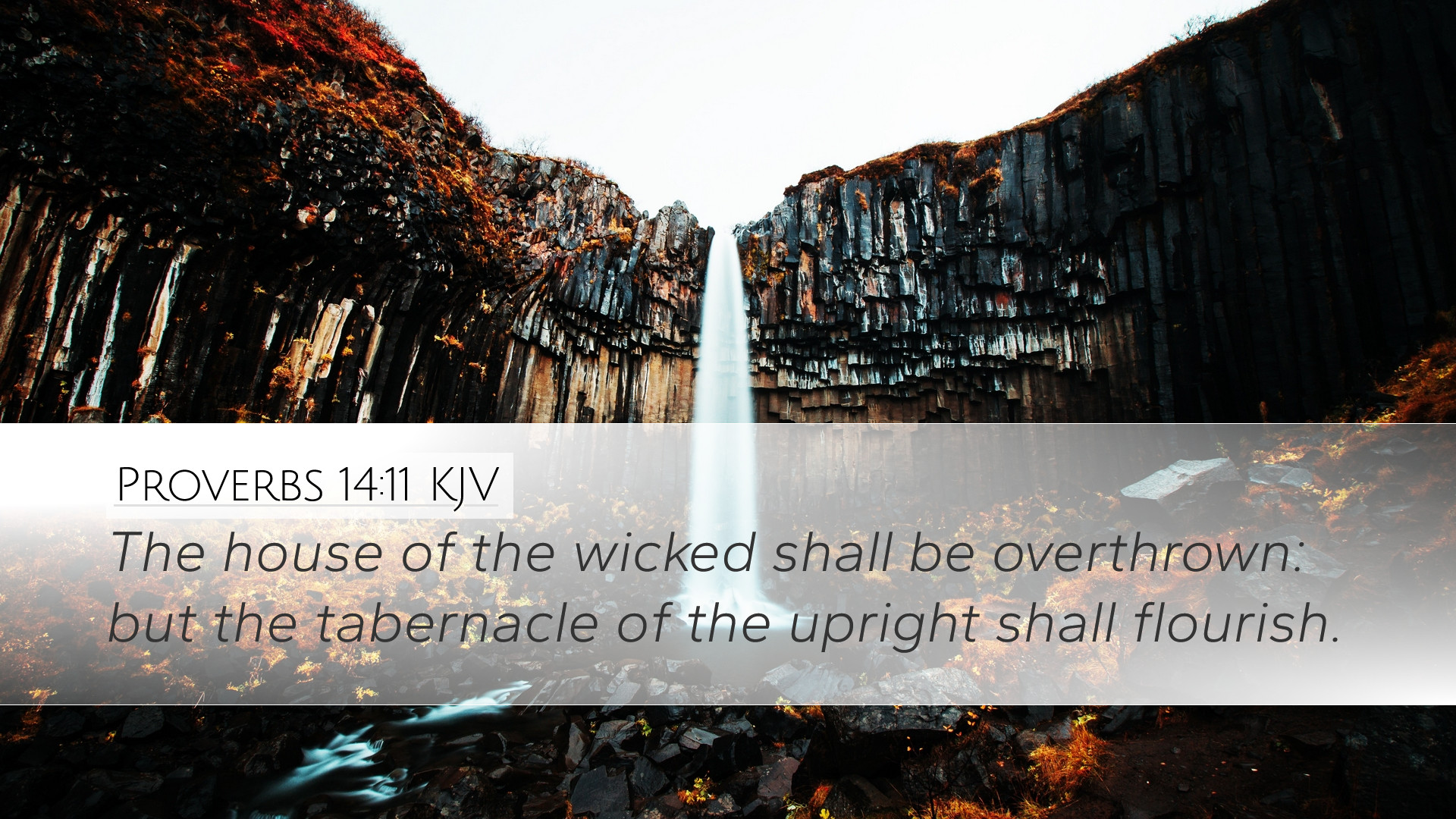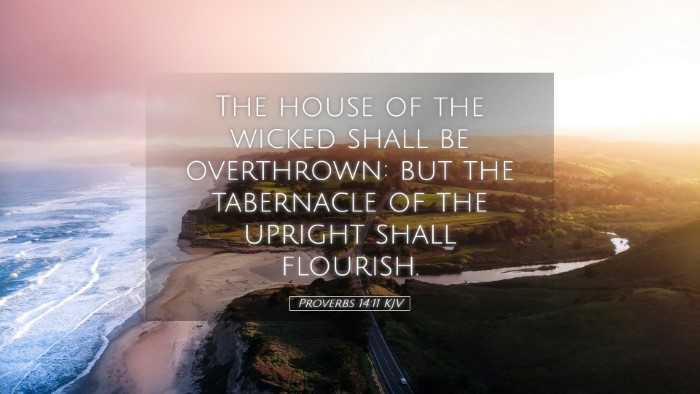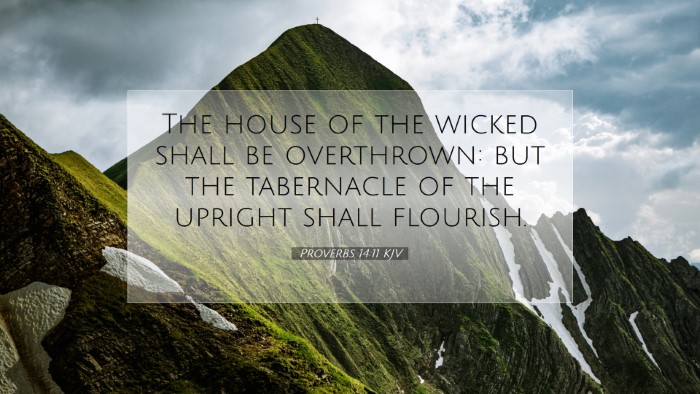Commentary on Proverbs 14:11
Verse: "The house of the wicked shall be overthrown: but the tabernacle of the upright shall flourish."
Introduction
This verse from the Book of Proverbs contrasts the fate of the wicked with that of the upright. It offers timeless wisdom that resonates with both the theological and practical aspects of human life. Understanding this verse requires an examination of its implications on character, morality, and divine justice.
Contextual Analysis
Proverbs is a collection of sayings that impart wisdom for daily living. This particular verse reflects the overarching themes of righteousness and wickedness prevalent throughout the text. It serves as a reminder of the inevitable consequences of one's choices and the divine order that governs the moral universe.
Insights from Matthew Henry
Matthew Henry emphasizes the assured ruin of the wicked and the prosperity of the just. He notes that "the house of the wicked shall be overthrown," highlighting that the prosperity built on sin is fundamentally unstable. Henry elaborates that although the wicked may flourish temporarily, their destruction is certain as they stand opposed to God’s laws.
Conversely, he highlights "the tabernacle of the upright" as a symbol of a stable and flourishing existence rooted in righteousness. The upright, embodying integrity and virtue, find favor with God, leading to enduring success and spiritual well-being.
Insights from Albert Barnes
Albert Barnes provides a systematic approach to this verse. He explains that a "house" symbolizes not just a physical dwelling but also a legacy, family, and heritage. The downfall of the wicked’s house is a manifestation of the destructive consequences of sin, both for the individual and their lineage.
Barnes contrasts this with the "tabernacle of the upright," which signifies a tent or temporary dwelling, often seen as a metaphor for God’s presence among His people. He points out that the upright may not always possess the material wealth associated with the "house," but they have an enduring relationship with God that ensures their ultimate flourishing.
Insights from Adam Clarke
Adam Clarke elaborates on the metaphorical implications of "house" and "tabernacle." He indicates that the house refers to the realm of earthly pursuits and ambitions—whatever the wicked build will ultimately collapse due to its shaky foundation. Clarke emphasizes the futility of wicked endeavors and the inevitable divine judgment that brings them to ruin.
On the other hand, Clarke sees the "tabernacle of the upright" as a testament to the divine favor resting upon those who live virtuous lives. Unlike the static house, the tabernacle suggests a dynamic relationship with God—one that provides sustenance and growth, emphasizing that true prosperity follows righteousness.
Theological Implications
The tension between righteousness and wickedness in this verse serves as a microcosm of biblical theology. It evokes themes of divine judgment, grace, and the moral order established by God. The contrast highlights that God's justice is not passive; rather, it actively apportions blessings to the upright while conferring devastation upon the wicked.
- Divine Justice: The assurance that wrongdoing leads to destruction reinforces the belief in God’s moral governance over creation.
- Grace and Flourishing: The flourishing of the upright suggests that righteousness brings with it God's grace, which enhances the believer’s existence.
- Hope for the Just: For pastors and theologians, this verse can serve as a source of encouragement—affirming that ultimately, God’s justice prevails.
Application for Today
In a contemporary context, this verse challenges individuals and communities to reflect on the foundations of their lives. Believers are called to align themselves with God's principles, recognizing the temporary allure of wicked pursuits.
- Examine Foundations: Encourage faithful evaluation of personal and communal foundations—are they built on virtue and integrity or seeking personal gain at the expense of others?
- Pursuit of Righteousness: It reinforces the necessity of pursuing righteousness, as it aligns one with God’s blessings, which leads to genuine success and fulfillment.
- Teaching Future Generations: There's a compelling need for pastoral leadership to teach the principles found in this verse to nurture future generations towards godliness.
Conclusion
Proverbs 14:11 serves as a stark reminder of the eternal principle that what we build based on righteousness flourishes under the hand of God, while the structures of wickedness are destined for ruin. Pastors, scholars, and believers are called to heed this wisdom, ensuring that their lives and legacies reflect an unwavering commitment to the values of the upright.


